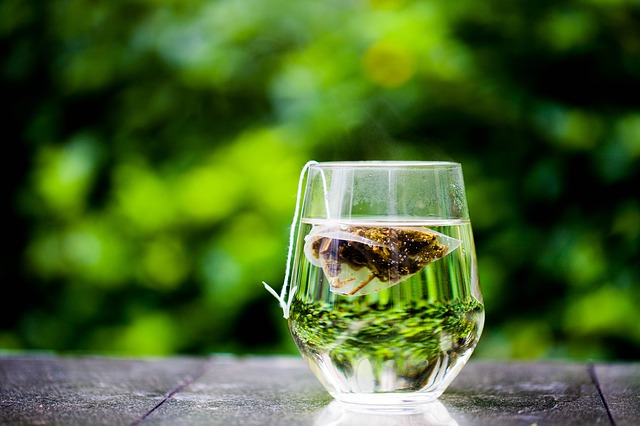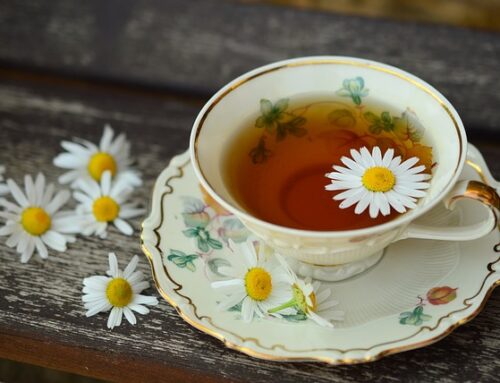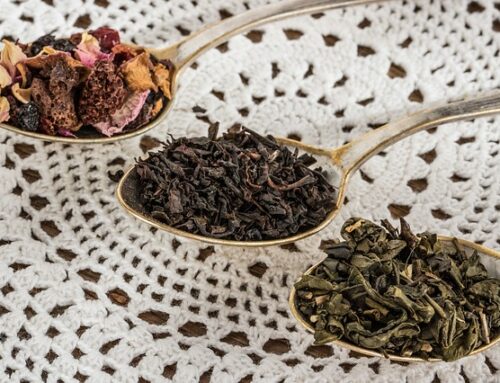If you’re reading this article, chances are, you may have taken tea steeping time for granted. There were once I ordered a pot of rose tea and the waitress kindly told me to remove the rose petal pouch after 5 minutes.
I missed the mark by an additional two minutes and as I took the first sip, an unimaginably bitter taste attacked every single cell of my taste bud. To be fair, I was warned that this might happen but I guess I didn’t take her seriously.
Since then, I made sure that I read the labels on every type of tea that I’ve bought, and I made an effort to understand why certain teas turned bitter.
What Happened When You Steep A Tea Bag?
In the strictest sense, tea is referred to as the beverage steeped from the Camellia sinensis plant. Black tea, green tea, oolong tea and white tea all originates from the same plant but with different processing method. Black tea and oolong are left to be oxidized but green and white tea are dried to prevent oxidization.
Some would argue that herbal teas are not real tea as they originate from other herbal plants. But the fact remains that the duration of steeping will result in a significant difference in taste for some herbal teas. Therefore, it helps to get the timing right, whether it is ‘true teas’ or herbal teas.
But let’s take pure tea leaves for a start. When you pour hot water onto a tea bag, the natural compounds present in the tea leaves will seep into the water. That’s what happened when the water starts changing color the moment it the cup.
Natural compounds that give tea the taste and aroma are the first to dissolve into the water. As you continue to steep the teabag, caffeine, and antioxidants such as flavanol followed. Tannins, a compound that leaves the lingering bitter taste in tea, is the last to be diffused into the water.
The same applies to steep herbal tea, such as lavender, chamomile, or in my case of tea-turned-bitter, the rose tea. This process is a combination of two natural phenomena; osmosis and diffusion.
How Hot Should The Water Be?
You ought to be aware that the temperature of the water also affects the diffusion rate, and ultimately the taste and aroma of the tea. The hotter the water is, the faster the compounds of the tea permeates and integrate with the water.
However, you shouldn’t go steeping every type of tea with boiling-hot water. Two Leaves and a Bud, a tea company founded in Colorado, advises that you should steep black, herbal and red teas at full boil temperature (208˚ – 212˚F) while green and white tea should be in the range of 170˚ – 185˚F as too much heat can affect the flavor in a negative way.
Steeping Time: Tea Bags Vs Loose Leaf
You may have realized that the argument of tea bags vs loose leaf is favoring the latter in terms of taste, and aroma, but tea bags are winning inconvenience.
Tea bags are filled with dust and fannings of the tea, which is generally of lower quality than loose leaves. Also, the bags restrict the leaves within and there isn’t much space for the leave to spread out when steeped.
Technically, you can’t make tea bags taste as good as their loose leaf counterparts regardless of how you extend the steeping time. Therefore, it’s safe to follow the general steeping time for loose leaf when you’re using tea bags.
How Long Should You Steep Your Tea?
There’s so much science involved in steeping a cup of tea. Too fast and you won’t get the depth of flavor, and when you leave it for too long, you may get a better-tasting tea. So, be sure to check out the direction that comes with the tea bags, or check out what I’ve gathered.
Art of Tea offered a thorough guide on its website. Here’s what the tea company says about the steeping time of different tea.
- White tea | 1- 3 min | 175º-185º F
- Green Tea | 3 min | 180º-185º F
- Black Tea | 3 -5 min | 206º F
- Darjeeling | 3 min | 185º F
- Oolong rolled | 3-5 min | 185º-206º F
- Oolong Long Leaf | 3-5 min | 185º-206º F
- Tisane (Herbal Teas) | 5 – 7 min | 206º F
- Raw Pu-Erh | 3-5 min | 195º F
- Half & Full Baked Pu-Erh | 3-5 min | 206º F
Personally, I prefer to try different steeping time as I enjoy noticing how the taste of the tea changes within such a short period of time. If you’re looking for a caffeine boost, you’ll want moderate steeping time to allow the caffeine to dissolve into the water.
If you’re wary of having a bitter taste on your tea, don’t leave it longer than the recommended steeping time. Alternatively, you can try drinking herbal tea that is free from tannic-acid, such as rooibos.
I hope you will avoid the fate of having a full pot of bitter-tasting tea that I had, just because you missed out the steeping time by a couple of minutes.
Related:
- Best Valerian Teas
- Best Organic Hibiscus Tea
- Best Echinacea Tea
- Best Organic Rooibos Tea
- Best Organic Lavender Tea For Better Sleep





Leave A Comment